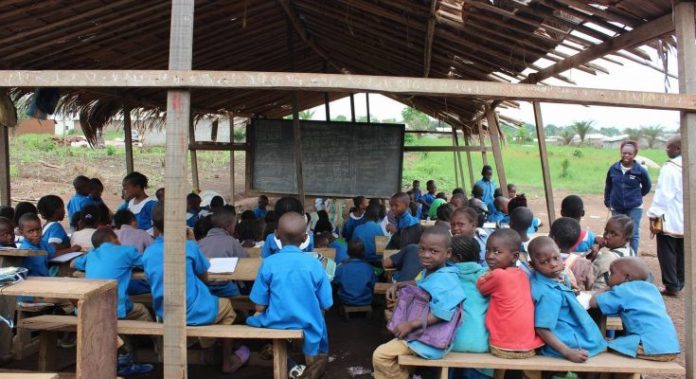
‘Readers are Leaders’ is a phrase that is often quoted as community activists discuss the value of literacy in the society. This phrase is true because successful people often learn effective leadership techniques by reading the works of other successful people.
Literacy deeply and persistently impacts access to education, economic development, and life outcomes. Even in our modern world, the numbers are startling.
The International Literacy Association views “literacy as the ability to identify, understand, interpret, create, compute, and communicate using visual, audible, and digital materials across disciplines and in any context”
Education is a veritable part of human social existence. Level of education reflects on the level a people have attained in consciousness and that is why its deficiency casts more than gloomy shadow in the horizon. The level of illiterates in Northern Nigeria has greatly undermined Nigeria’s progress especially in the social front.
If you want a glimpse into the hitherto poor Northern education system there is no better vantage point than the town of Bodinga, located in the impoverished Savannah region of Sokoto state in Northwestern Nigeria. Drop into one of the local primary schools and you’ll typically find more than 50 students crammed in an uncompleted building they called “classroom’. Just a few will have textbooks. If the teacher is there, and they are often absent, the children will be on the receiving end of a monotone recitation geared towards rote learning. Not that there is much learning going on. One recent survey found that 80 percent of Sokoto’s Grade 3 pupils cannot read a single word. They have gone through three years of zero value-added schooling. Mind you, the kids in these classrooms are the lucky ones, especially if they are girls. Over half of the state’s primary school-age children are out of school – and Sokoto has some of the world’s biggest gender gaps in education. Just a handful of the kids have any chance of making it through to secondary education.
Sixty-nine percent of out-of-school children in Nigeria are in Northern states. Bauchi has the highest number with 1.1 million and Katsina follows with 781,500.
For a long time probably since late 1980s the youths of this nation have been on bondage as a result of unemployment caused by faulty institutional structures, illiteracy, corruption and poor management of resources. Though unemployment is a global phenomenon, the situation in Nigeria, north to be specific has reached the crisis stage.
The few educated amongst the elites of Northern Nigeria aptly represents the vision for the deficient to draw sight, which mostly leads towards satisfying their selfish interests via manipulation. Therefore, there is no need not to look further why Nigeria cascades from one ethno-religious miasma to another.
We need not to express surprise as to why ethno-religious supremacy has continued to dominate national discourse with high octane hate, tearing our unity asunder. The bane of Nigeria’s social, political existence has been nonchalance towards addressing level of illiteracy in the country.
The absence of education has forced many Nigerians ( both from north and south regions) to the brink. The prevalence of criminal activities in the North recently outmatches those in the past. Youths are now willing tools in the hands of few ruling elites who have the money to pay them into doing their bidding. Once the few with resources tell them to jump, they ask how high. The height of ignorance in the North is alarming. This has opened a new crime “opportunity” in the Northeast which is terrorism. Less than ten years ago, no Nigerian will ever conceive the imagination that a citizen can ever take to suicide bombing.
Over seven million children in northern Nigeria are in the Almajiri System, according to figures from the National Council for the Welfare of Destitute (NCWD). That figure is three times the population of The Gambia. They are lopped off at thousands of Quranic schools that dot cities in many parts of northern Nigeria where they learn five days in a week, and attend classes four times in a day. They are also expected to earn a living by begging and sometimes provide for their teachers’ upkeep too.
On Fridays, they are let loose on the city where they beg for alms to feed, or run errands. The notorious ones get their preliminary introduction in fundamentalism from rabble-rousing street preachers who introduce them to the terror trade.
The statistics are grim. The realities are even grimmer. The future of the present education crisis in northern Nigeria – if not resolved on time – can snowball into a mess of national proportion. Already ravaged by illiteracy and a growing sense of extremism – apart from the already devastating Boko Haram insurgency – the rising number of out-of-school children in the North is giving some sleepless nights knowing they can no longer go out of their houses with the assurance of coming back alive.








































